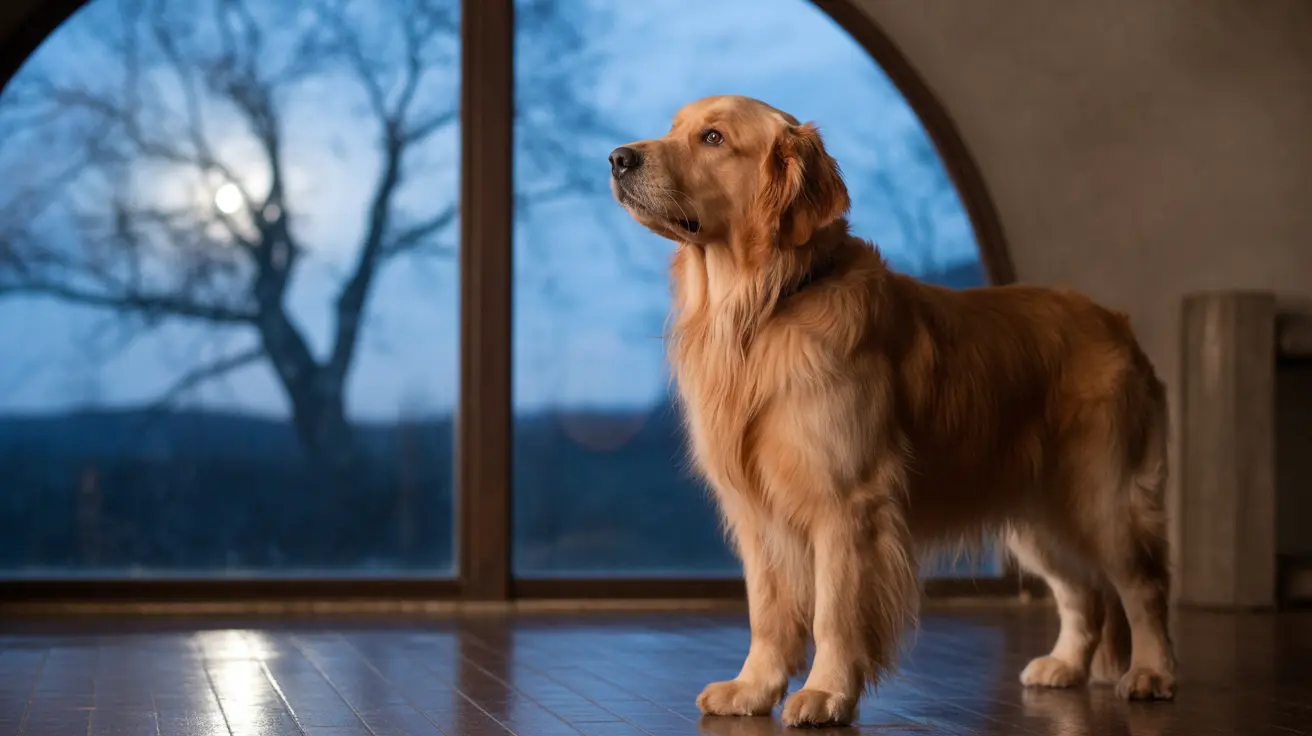If you've ever been startled awake by your dog growling at seemingly nothing in the middle of the night, you're not alone. This common but concerning behavior can leave pet owners feeling confused and worried about their furry friend's wellbeing. Understanding why dogs exhibit this behavior and how to address it is crucial for both your peace of mind and your pet's comfort.
Understanding Nighttime Dog Growling Behavior
Dogs are naturally more alert than humans and can detect sounds, movements, and even smells that we might miss, especially during quiet nighttime hours. What appears to be growling at nothing could actually be your dog responding to stimuli that are beyond human perception. Their superior hearing and smell capabilities mean they're often reacting to very real triggers that we simply cannot detect.
Common Triggers for Nighttime Growling
Environmental Factors
Many dogs growl at night due to environmental triggers such as:
- Unfamiliar sounds from neighbors or outside
- Wildlife activity around your home
- Changes in household routine or environment
- Unusual shadows or light patterns
- Unfamiliar smells wafting through windows or under doors
Physical and Medical Causes
Sometimes, nighttime growling can be attributed to physical discomfort or medical conditions:
- Joint pain or arthritis that worsens when lying down
- Age-related cognitive dysfunction
- Vision or hearing changes that increase anxiety
- Digestive issues or discomfort
Sleep-Related Issues and Dream States
Dogs, like humans, experience different sleep stages and can exhibit various behaviors during their sleep cycle. Sometimes, what appears to be growling at nothing might actually be:
- Reaction to vivid dreams or nightmares
- Sleep startle response when suddenly awakened
- Sleep-related anxiety or restlessness
Creating a Calm Night Environment
To help reduce nighttime growling episodes, consider implementing these strategies:
- Maintain a consistent bedtime routine
- Provide a comfortable, secure sleeping space
- Use white noise machines to mask external sounds
- Ensure adequate exercise during the day
- Keep the sleeping area at a comfortable temperature
Frequently Asked Questions
Why is my dog growling at nothing during the night?
Your dog may be responding to sounds, smells, or movements that humans can't detect. They might also be experiencing anxiety, discomfort, or reacting to dreams during sleep.
How can I prevent my dog from growling when they're startled awake from a deep sleep?
Avoid suddenly waking your dog, and when necessary, use a soft voice and slow movements. Create a consistent sleep routine and ensure their sleeping area is secure and comfortable.
What causes dogs to have bad dreams, and how can I help my dog sleep more soundly?
Dogs, like humans, process daily experiences through dreams. Regular exercise, a consistent routine, and a calm environment before bedtime can help promote better sleep quality.
Can fear or anxiety from environmental changes trigger nighttime growling in dogs, and if so, how can I address it?
Yes, environmental changes can cause anxiety-related growling. Address this by maintaining routine, gradually introducing changes, and providing a safe, consistent sleeping space.
How can I create a comfortable sleeping environment for my dog to reduce nighttime anxiety and growling?
Provide a quiet, dark space with comfortable bedding, maintain room temperature, use calming aids like white noise machines, and ensure the area is free from drafts or disturbances.
When to Seek Professional Help
If nighttime growling persists or worsens, consult with your veterinarian to rule out medical issues. A professional dog behaviorist can also help identify specific triggers and develop a customized solution for your pet's needs.






